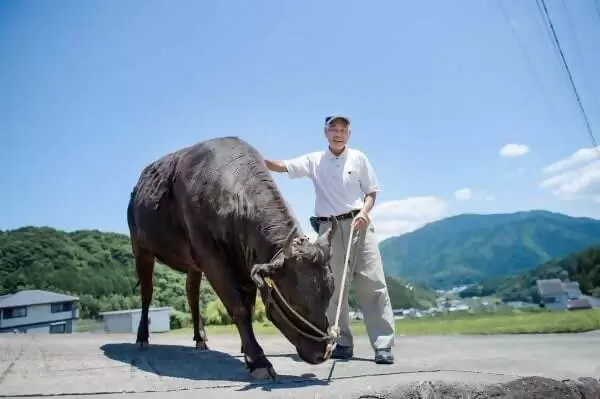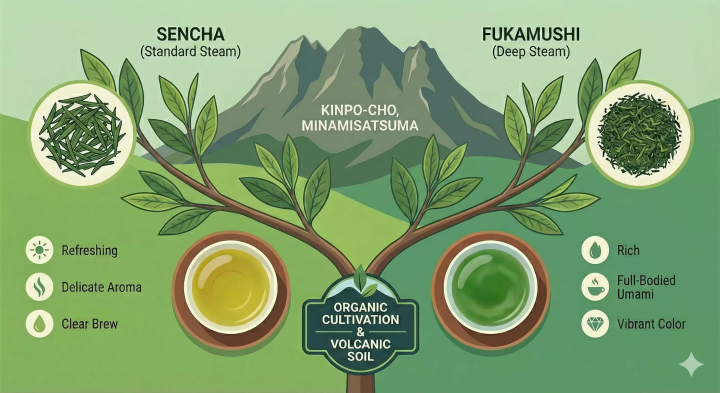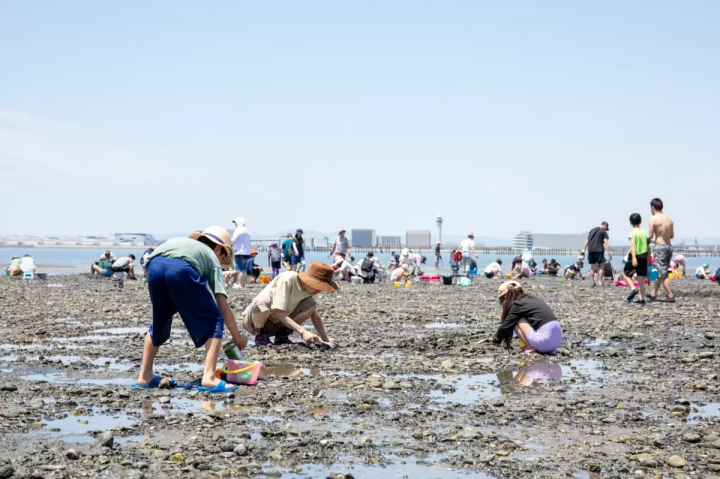Special Hands-on Tour - Visit Tsukiji Market And Try Making Sushi!

ABC Cooking Travel offers a special tour called "Tsukiji Fish Market Tour + Sushi Roll Cooking". MATCHA's editorial group joined the tour and today will bring you all the details. This tour is ideal for those who like Japanese food and culture.
Tsukiji Market - Join a Popular Cooking Tour in Tokyo
Mention a Japanese food that's popular with international visitors, and sushi often comes to mind. In Tokyo there's a special tour called the Tsukiji Fish Market Tour + Sushi Roll Cooking, aimed at those visitors who don't just want to eat sushi, but would also like to try making it.
ABC Cooking Travel, the company featured in this article, has an excellent reputation for providing high quality English-guided tours, which introduce interesting sightseeing spots and offer hands-on cooking classes.
In addition to teaching participants how to make makizushi (rolled sushi), this tour also includes a visit to Tsukiji Market. Here visitors will walk around with a tour guide and see all the amazing sights at Tokyo's lively fish market. The guide will give commentary in English, so even those who don't understand Japanese can easily join the tour without any worries.
Today, MATCHA's editorial team joined this tour, one that has suddenly become immensely popular among visitors to Japan.
Tour Tsukiji Fish Market and Try Making a Sushi Roll!
Let's Make Reservations Beforehand
To join the Tsukiji Fish Market Tour + Sushi Roll Cooking, interested parties will first need to preregister on the following website:
ABC Cooking Travel Homepage.
The event can go ahead if more than two people sign up, and almost every day during the week there are enough people to run the tour. After registering, you'll receive an e-mail from ABC Cooking Travel. Just check the details in the e-mail, then it'll be time to join the tour!
9:20 - Meet at Tsukiji Honganji Temple

From left to right: Kyle, Julian, Evan and Narumi (guide)
Our meeting spot is at Tsukiji Honganji Temple. It's located just one minute away on foot from Tsukiji Station (Tokyo Metro Hibiya Subway Line) and it's a large building, so we should be able to find it right away.
Julian, who's from Colombia, and Americans Kyle and Evan all joined today's tour. Our guide is Narumi. After we all introduced ourselves to each other, the mood became friendly and relaxed, so we then made our way towards Tsukiji Market.
9:30 - First Let's Head to Tsukiji's Outer Market!

Not only the oldest fish market in the Tokyo area, Tsukiji Market also handles more fresh seafood and fish than any other market in the world. As some people already know, the market is divided into the jogai, or outer market, and the jonai, or inner market.
In the outer market, everybody is free to go shopping in the stores and eating in the restaurants. On the other hand, the inner market has some restricted areas, because it's essentially where retailers buy fish and other products in large amounts for their shops and businesses.
For more details on the market, please have a look at the following article, Jonai And Jogai: Find Your Way Around Tsukiji Fish Market Like A Pro.
Look Around the Outer Market With a Guide

First of all, we paid a visit to the shops lining the outer market, all of which are open to the general public. Keeping us in mind, the guide personally selected some famous shops and other stores selling unique items, and these are the places that we'll be dropping into next.
There are some four hundred shops in the outer market, but under the care of our skillful guide, we were able to look around the entire area in an efficient manner.
One of the unique features of this tour is that the guide uses English to introduce the highlights of the market and explain its history. For example, as we all stood in front of a chain sushi shop, she explained about the Maguro Tuna Auction, one of the lively events happening at the beginning of every new year.
"At this auction, it's been said that bidding on the tuna will bring business owners good luck and set a positive tone for the new year, and the latest catch is usually auctioned off for an extremely high price. In the past, there have been bids exceeding one million US dollars for a single bluefish tuna!"
Everyone was surprised when they heard this part of our guide Narumi's commentary.
Outer Market - You Can Buy Souvenirs Here As Well

As we were walking around the area, a shop handling knives caught the attention of Julian.
Looking quite impressed by it all, Julian commented, "Japanese knives are famous for their precision cutting, aren't they. But I had no idea that there were so many varieties of them; some just for meat and others for fish, and so on."

During the tour, participants can stop in at any shop that appeals to them and buy a souvenir, and also buy a tasty snack and enjoy eating it as they go browsing around.
Let's Walk Around Tsukiji's Main Inner Market

Next, after looking around the outer market, we'll head for the inner market. In contrast to the loud and boisterous outer market, the inner market has a somewhat frenetic and restless atmosphere, due in part to the many turret trucks quickly rushing back and forth, carrying packages and products to their destination.
*For your own personal safety, please be on the lookout for these vehicles.
Inside the inner market, there are auctions and also various wholesalers selling fresh fish and seafood products.

In the inner fish market, we'll have about twenty minutes to do some walking on our own. Tour participants are encouraged to stop in and take a look at any place that looks interesting to them.
Here and there you can see maguro tuna, also all kinds of fish still showing lots of life as they flip around on the shop trays, and even some swimming around in their tanks.

"There's some distance separating the outer and inner markets, so it might be easy to get lost if you're on your own, but on this tour, you don't have to worry about anything because the guide will escort you.
Above all, thanks to the guide's detailed and informative commentary, I was able to have a deeper understanding of the market." commented a deeply impressed Julian.
It looks as though he really enjoyed the tour of Tsukiji Market.
Our Cooking Lesson Will Soon Begin!

After we finished looking around the market, we then hopped into a taxi and headed for the cooking studio in Tokyo's Marunouchi area.
Next, our long awaited sushi class is about to get underway. The studio has arranged all the utensils and cooking ingredients for us ahead of time, so as participants we don't need to bring anything.
The cooking lessons are conducted in English. Today, our teacher Yuko-sensei, taught us how to make makizushi (rolled sushi), tamago-yaki (Japanese-style omelette), and miso soup using dashi (*1).
*1 Dashi: a Japanese-style soup stock made with konbu seaweed and katsuobushi fish flakes.

At the top of today's menu is tamago-yaki (Japanese omelet). In a bowl, we'll mix some eggs, then add some salt, sugar and soy sauce (shoyu), before finally putting the mixture into a rectangular-shaped fry pan.
First Yuko-sensei showed us step by step how to make the tamago-yaki, and then next it was our turn to give it a try.

While all the participants were eagerly involved in their cooking, someone's egg omelet mixture looked like it was going to split open on top. This was a potential problem because Japanese cuisine is noted not only for its taste, but also for its delightful appearance. Upon seeing this, Yuko-sensei suggested to the student that they simply turn the egg omelet over with their chopsticks so that the damaged side is facing down.
Kyle commented, "I really like the way our teacher gently took us through all the steps in the cooking process. I was able to get the knack of how to cook these foods, something I probably couldn't have done by using a book or the internet."
Being able to ask questions in English when you don't understand something or need clarification, is one of the benefits of ABC Cooking Travel's class.
Let's Try Making a Sushi Roll!
Now for the main event, let's try making some makizushi (rolled sushi).

First, we'll start by making sumeshi, or vinegared rice, which will naturally affect the overall taste of the sushi.
At this point in time, the teacher then taught us the finer points of making vinegared rice: for example, how much vinegar and sugar to add to the cooked rice, and also how to separate the rice kernels without crushing them, by using a kind of "cutting" motion with a shamoji (*2) when stirring the rice.
"I thought all you had to do was just mix the rice, but in fact you need to exert just the right amount of hand pressure on the shamoji when doing the mixing." commented Evan, who looked totally fascinated by this process.
After carefully mixing the rice with the shamoji exactly as we were taught, the resulting vinegared rice looked shiny and glossy, just the way it should be.
"Now it looks like I'll be able to make delicious sushi at home!" exclaimed Evan, exhibiting some new-found confidence.
*2 Shamoji: a flat spoon-like utensil (rice paddle) used for mixing and serving rice (see above photo).

Next, we'll spread out the vinegared rice along the full length of the nori seaweed sheet. Then on top of the rice, we'll lay down our ingredients, including shiitake mushrooms and our freshly made tamago-yaki.
"When rolling the sushi, make sure to hold it down firmly so that the ingredients stay put inside" emphasized Yuko-sensei, highlighting for us one of the secrets to making good sushi.

Finally, we'll cut the sushi into small segments. To start the cutting motion of the knife, first insert it into the sushi roll and gently pull the knife back towards you, before moving it forward in the opposite direction. In this way, the sushi roll will maintain its shape during the slicing procedure.
"Though making makizushi looks difficult, Yuko-sensei taught us in such an easy to understand manner, that we were all able to make it without any problems. Starting with the flavoring techniques, all the way up to how to use a knife properly, Japanese and western-style cooking are completely different. It's great how we were able to get a good foundation for the basics of Japanese cooking!" said Julian, giving us his impressions of today's cooking lesson.
12:00 - Time Now to Taste Our Carefully Prepared Creations!


From January 1st, 2018 the menu also includes temari sushi (round-shaped sushi).
Look! We successfully made some delicious-looking makizushi. After all this hard work, it's now time to give it a taste test! We'll sample the sushi, tamago-yaki, and miso soup, all made by ourselves.
Today, in cooperation with the Japan Sake and Shochu Maker's Association, we also had the unique pleasure of tasting some Japanese shochu (Japanese distilled liquor) as well.

"The sushi that we each made by ourselves was so delicious, and it was a lot of fun!" said the participants who were all sporting big smiles.
After each lesson, participants all receive English recipes so that they can make these dishes at home in their own time. Upon returning to their home countries, entertaining family and friends with homemade sushi and other dishes will certainly be a big hit!
Each class participant also receives a certificate of completion. Upon receiving his, Julian said with a look of satisfaction, "This really gives you a sense of achievement!"
This tour, which lasts three hours and includes a tour of Tsukiji Market and a sushi making class, is recommended for first-timers to Tsukiji Market, for those people who like Japanese cuisine, and for visitors who'd like to come into contact with Japanese culture.
Anyone, regardless of their country of origin or gender, can enjoy this tour. It's especially popular with groups of friends, families, and couples as well.
Please refer to Tsukiji Fish Market Tour + Sushi Roll Cooking, to make a reservation or to get more details on this tour.
For further information please see: ABC Cooking Travel Official Homepage
Written by Naho Soutome
Photos by Miho Yamaki
Sponsored by ABC CAPITAL Co,.Ltd. Travel Section ABC Cooking Travel
MATCHA's promotional account for corporate and local government advertising. We aim to provide useful information to our readers in an enjoyable manner.






























![[Kagoshima] Overcoming 12 Years of Hardship: Walking through Minamisatsuma City, the sacred land where the monk Ganjin landed](https://resources.matcha-jp.com/resize/720x2000/2026/02/21-259481.webp)



